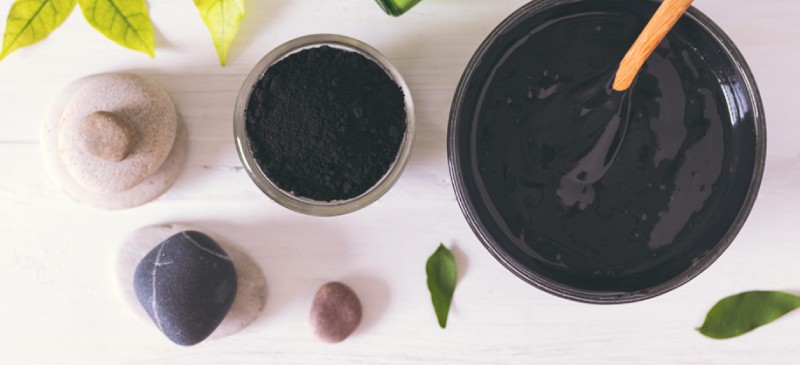This Dr. Axe content is medically reviewed or fact checked to ensure factually accurate information.
With strict editorial sourcing guidelines, we only link to academic research institutions, reputable media sites and, when research is available, medically peer-reviewed studies. Note that the numbers in parentheses (1, 2, etc.) are clickable links to these studies.
The information in our articles is NOT intended to replace a one-on-one relationship with a qualified health care professional and is not intended as medical advice.
This article is based on scientific evidence, written by experts and fact checked by our trained editorial staff. Note that the numbers in parentheses (1, 2, etc.) are clickable links to medically peer-reviewed studies.
Our team includes licensed nutritionists and dietitians, certified health education specialists, as well as certified strength and conditioning specialists, personal trainers and corrective exercise specialists. Our team aims to be not only thorough with its research, but also objective and unbiased.
The information in our articles is NOT intended to replace a one-on-one relationship with a qualified health care professional and is not intended as medical advice.
DIY Charcoal Mask with Rosehip and Tea Tree Oils
July 4, 2018

Activated charcoal is an age-old natural remedy that has been used for thousands of years in Eastern medicine and clinically for about 150 years in Western Medicine. (1) There are many uses and benefits of activated charcoal, including the removal of toxins, digestive health, anti-aging, teeth-whitening, and many more.
Why is charcoal great for your skin?
Because of it’s porous surface, activated charcoal draws out impurities through the process of adsorption, not to be confused with absorption. Because of this process, charcoal pulls out dirt and oil from your skin.
Which charcoal mask is best?
While trying to search out the best mask for your particular skin troubles — whether it is excess oil, blackheads or acne, there are many brands which offer face masks at varying price ranges. The problem with these is that many are loaded with numerous toxic chemicals. You can find more information on brands of masks and their ingredients on the EWG’s Skin Deep Cosmetics Database. But, rather than expose yourself to unnecessary chemicals that can be harsh on the skin, try making my DIY charcoal mask or even a peel-off DIY blackhead mask (details below).
DIY Charcoal Mask
Total Time: 5 minutes
Ingredients
- 6 capsules activated charcoal
- 3 tablespoons bentonite clay
- 3 tablespoons apple cider vinegar
- 15 drops pure rosehip oil
- 3 drops tea tree essential oil
Directions
- Using a non-metallic utensil, such as a rubber spatula or wooden spoon, mix together the contents of the activated charcoal powder and bentonite clay in a glass bowl (metals will de-activate the natural charge of the clay).
- Add apple cider vinegar (ACV) one tablespoon at a time, stirring well, until an easily spreadable paste is formed. You may notice some fizzing as you add the ACV; this is a normal reaction.
- Add 15 drops of rosehip oil and 3 drops of tea tree essential oil. Stir well to combine.
- Store in a glass, airtight container in the refrigerator.
How to Use
With clean fingers or a mask applicator, spread the DIY charcoal mask mixture over face and neck, avoiding your eyes. Allow to dry, approximately 20 minutes. Remove with warm water, and follow with a good moisturizer and humectant. For best results, you may use this mask twice weekly.
How do you get a charcoal mask off?
Simply remove the charcoal mask with warm water and a washcloth. Whether rinse-off or peel-off, activated charcoal has strong oil-absorbing and acne fighting properties, so you will want to follow with a good toner (or just ACV), moisturizer and a humectant to seal in that moisture.
Peel-Off DIY Blackhead Mask with Charcoal
Do charcoal masks help with blackheads?
Using activated charcoal makes an excellent blackhead face mask. Blackheads are the result of hardened sebum (oil that is naturally produced by the body) in pores. It is not recommended for anyone to pick at, or squeeze out blackheads, as this can cause further damage to the skin and infection. Instead, for an instant fix, you can make a peel-off DIY blackhead face mask with charcoal to adhere to and lift out the hardened plugs of oil.
How do you make a peel-off charcoal mask?
To make this simple peel-off DIY blackhead mask, simply combine the following ingredients with 3 teaspoons of boiling water in a glass bowl:
- 2 activated charcoal capsules
- 1/2 teaspoon bentonite clay
- 2 teaspoons powdered gelatin
- 2 drops of tea tree or lavender essential oil (optional)
Stir well to combine with a rubber spatula. Because the gelatin will continue thickening, you want to quickly apply the mask with a mask brush, avoiding the eyes and hair — such as eyebrows. Allow to dry completely — approximately 25 minutes — then peel off beginning at an outside edge.
DIY Charcoal Mask with Rosehip and Tea Tree Oils
Ingredients:
- 6 capsules activated charcoal
- 3 tablespoons bentonite clay
- 3 tablespoons apple cider vinegar
- 15 drops pure rosehip oil
- 3 drops tea tree essential oil
Directions:
- Using a non-metallic utensil, such as a rubber spatula or wooden spoon, mix together the contents of the activated charcoal powder and bentonite clay in a glass bowl (metals will de-activate the natural charge of the clay).
- Add apple cider vinegar (ACV) one tablespoon at a time, stirring well, until an easily spreadable paste is formed. You may notice some fizzing as you add the ACV; this is a normal reaction.
- Add 15 drops of rosehip and tea tree oils. Stir well to combine.
- Store in a glass, airtight container in the refrigerator.

